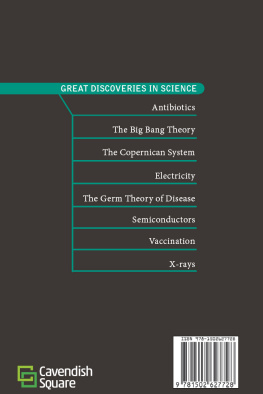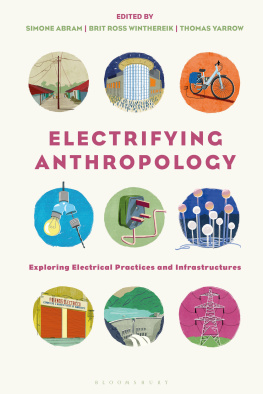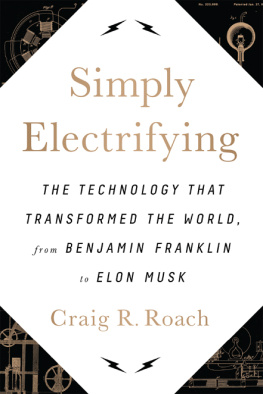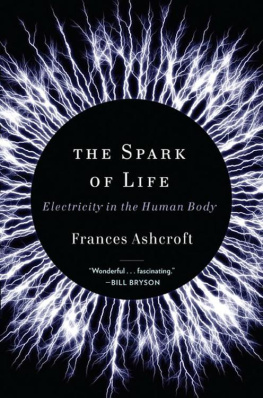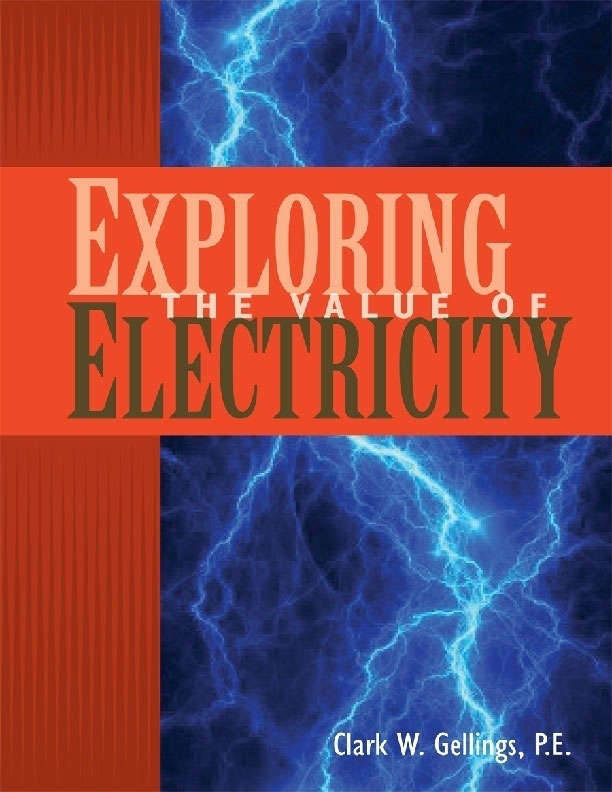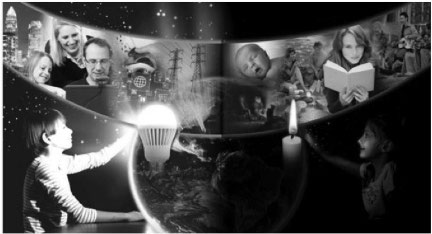Gellings, Clark W.
Exploring the value of electricity / Clark W. Gellings, P.E. 1st Edition.
Includes bibliographical references and index.
Published by The Fairmont Press, Inc.
2015 by The Fairmont Press, Inc. All rights reserved. No part of this publication may be reproduced or transmitted in any form or by any means, electronic or mechanical, including photocopy, recording, or any information storage and retrieval system, without permission in writing from the publisher.
While every effort is made to provide dependable information, the publisher, authors, and editors cannot be held responsible for any errors or omissions. The views expressed herein do not necessarily reflect those of the publisher.
Chapter 1:
IntroductionElectricity is Valuable!
Few dispute the fact that electricity is valuable. Certainly electricity provides services, sustains and improves the quality of life, provides warmth, illumination, transportation, medical diagnostics, and motive power, facilitates product development and use, and engenders technology. But electricitys value is not limited to these categories nor can its value be demonstrated by narrow examples of its use. Electricity empowers society and its synergistic effects offer benefits which have hardly been identified, let alone explored, evaluated or documented.
Summary
There are numerous viewpoints regarding electricitys value as are elucidated throughout this book.
Today electricity is literally woven into the fabric of modern society. To do without it is inconceivable, yet to estimate its value suggests there is a model in which we can compare life with and without it.
Electricity is taken for granted, and why shouldnt it be? It has become an essential service, like water, telephone, streets and bridges, the value of which are not easy to estimate.
One occasionally cited measure is to assume that the nations gross domestic product (U.S. GDP) is entirely dependent on electricity. That would suggest that the value of electricity is $17.6 trillion/year or the equivalent of $55 thousand per personmultiple orders of magnitude greater than anyones electric bill.
Based on an estimate of U.S. population as of July 1, 2014, of 322.6 million, just looking at electricitys role in medicine and its ability to power communications and sensors related to prolonging life rolls up to $17.2 trillion/year.
Using outage as a measure implies even greater value, since just one large industrial concern can lose more than $140 million/ day for a prolonged outage. One data center reported losses of nearly $2.0 million for just one day. While each major U.S. storm costs society between $150 and $240 billion/year.
Using customer surveys of blackouts shows an enormous range of impact from $ .17/kWh to $366.00/kWh, depending on customer type, size and duration of outage.
In this book we discuss each of these and more.
The Value of Electricity Storyline
Electricity is a natural phenomenonone of the basic forces of nature. It was not invented by humankind, it was discovered by humankind. It would be foolish to speculate life without electricity or electric phenomena. In fact without electricity, there would be no lifeall living creatures rely on electricity to send impulses to and from nerves and muscles. However, it is possible to speculate life without a modern electric systema world that would be void of many, if not all, of the modern conveniences society now enjoys. And, it is possible to speculate on the attributes of electricitys value. Both are attempted in this book.
The value of electricity which society acknowledges can be exemplified by an engraving chiseled in the building which is the Union [railroad] Station in Washington, DC. The engraving honors the progress of railroading and sits high above the West
Entrance flanked by Greek demigods Thales (representing electricity) and Themis (representing freedom or justice). It reads:
FIREGREATEST OF DISCOVERIES ENABLING MAN TO LIVE IN VARIOUS CLIMATES, USE MANY FOODSAND COMPEL THE FORCES OF NATURE TO DO HIS WORK.
Figure 1-1. Illustrates two worldsone with Electricity and one without
ELECTRICITYCARRIER OF LIGHT AND POWER, DEVOURER OF TIME AND SPACEBEARER OF HUMAN SPEECH OVER LAND AND SEA, GREATEST SERVANT OF MANITSELF UNKNOWN.
THOU HAS PUT ALL THINGS UNDER HIS FEET
It stands as a remindernot just of railroadingbut of electricity as the greatest servant of man.
Electricity Drives Human Functions
Electricity is key to the function of the human bodyit allows messages to be sent from one point to another, controls the beating heart, triggers muscle movement, and facilitates memory. The body generates electricity by leveraging the slight imbalance between the potassium and sodium ions inside and outside the bodys cells. At rest, the bodys cells have more negatively charged potassium ions inside the cells than positively charged sodium ions. When the body needs to send a message, a gate opens and ions flow generating an electrical impulse. Without electricity, the human body would not function. Scientists first began to realize the role electricity played in bodily functions by experimenting with animals. For example, in 1786, Galvani made this discovery by stimulating responses in frog legs with electricity. (Simon 2004)
One example of the dependency of the human body on electricity is evidenced by observing the phenomenon of epilepsy. As highlighted in the book, Electricity by Ray Robinson, an epileptic seizure actually is an electrical phenomenon. The story describes a woman who lives with epilepsy, where uncontrollable surges of electricity leave her in a constant state of edginess. She sees the world in terms of angles: you look at every surface, you weigh up every corner, and you think of your head slamming into it. Prickly, up-front honest, and down-to-earth practical, Lily has learned to make do, to make the most of things, and to look afterand out forherself. (Robinson 1971)
Robinson describes her ordeal as the following:
People will be stood over me, faces looming out of the dark after-fuzz, not knowing what to do. The old man pulling the dog off from licking me. And Im like if I dont wet myself, then maybe Ridge Racer wont mind me being late. Maybe hes late too. Or maybe I can rush home and change anyway, or just stick my knickers in my bag. Dry the back of my skirt under the blow-dryer in the ladies, spray some perfume on, right as rain.
What makes your brain do that? Electricity.
Electricity can actually help prevent the failure of the human bodys electrical system. Many young people die of the failure of the hearts electrical system known as sudden cardiac arrest or SCA (Winkley 2013) . SCA is not a heart attack. It occurs when the electrical system in the heart stops working rather than when a blockage disrupts blood flow. Thousands of teenagers die every year from sudden cardiac arrest. Many show no warning signs and have no family history of heart defects. However, a risk for sudden cardiac arrest can be identified with a noninvasive test called an electrocardiogram or EKG. An EKG tests the hearts electrical system and can alert physicians to warning signs.


